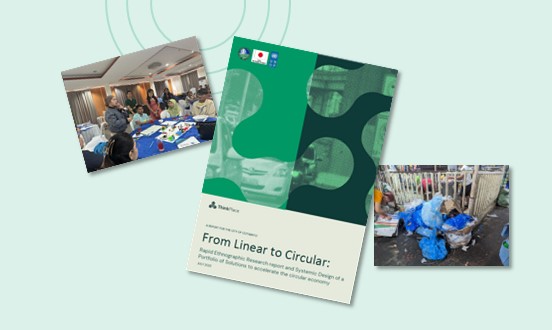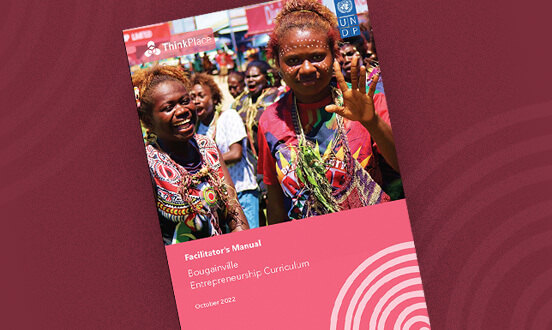Tony Blair Institute for Global Change | Philippines, Vietnam, Singapore
Introduction
The Tony Blair Institute for Global Change (TBI) works with governments and leaders worldwide to build open, inclusive, and forward‑looking economies. As part of their global AI and Future of Work initiative, TBI sought to understand how artificial intelligence (AI) adoption is reshaping jobs, industries, and worker experiences in Southeast Asia. ThinkPlace partnered with TBI to conduct in‑depth qualitative research in the Philippines, Vietnam and Singapore, capturing real‑world perspectives from workers, employers, and policymakers. The project set out to inform national and regional strategies for harnessing AI’s potential while safeguarding workforce well‑being.
The Challenge
While AI is transforming industries globally, its real‑world impact on Southeast Asian workers remains poorly understood. Most research and policy discourse has been shaped by perspectives from the Global North, overlooking the unique labour market dynamics, economic conditions, and cultural contexts of countries like the Philippines and Vietnam. TBI recognised an urgent need for evidence‑based insights to guide policy — particularly in industries most affected by AI, such as professional services, logistics, manufacturing, and textiles. They engaged ThinkPlace to lead this research because of our expertise in human‑centred design, participatory research, and complex system problem‑solving in the Asia‑Pacific region.
Our Response



ThinkPlace applied a multi‑phase, human‑centred approach:
- User Research – We conducted in‑depth interviews, focus group discussions, and workshops to uncover how AI is influencing job roles, productivity, and workplace culture.
- Insight Synthesis – We analysed worker experiences, identifying opportunities, concerns, and sector‑specific impacts. Themes included AI as a productivity enhancer, risks of job displacement in repetitive roles, and the need for human oversight to safeguard creativity, empathy, and nuanced decision‑
- Co‑Design Workshops – We brought together workers, employers, trade unions, and policymakers to co‑create and stress‑test policy ideas. Using realistic scenarios, participants explored the relevance and practicality of different AI‑related policies — from workforce transition measures to targeted reskilling programs and ethical governance guidelines. This ensured that proposed solutions were both grounded in lived experience and practically implementable.
- Collaborative Policy Development – Throughout the process, we worked closely with TBI’s Core Design Team to ensure that insights were embedded directly into their AI policy framework for Southeast Asia.

Our approach emphasised participatory engagement, ensuring that workers’ voices shaped not just the findings but also the proposed solutions.
Impact



The project produced a comprehensive User Insights Report that directly informed TBI’s policy recommendations on AI adoption in Southeast Asia.
These insights also fed into TBI’s thinkpiece publication — Augmenting Intelligence: Shaping the Future of Work in South‑East Asia. The thinkpiece outlines a coordinated, four‑part policy framework to:
- Promote human‑AI collaboration.
- Support targeted reskilling.
- Empower small and medium‑sized enterprises.
- Ensure inclusive access to digital tools.
By grounding these recommendations in lived worker experiences, our research helped ensure that AI strategies are inclusive, context‑specific, and responsive to the realities of the region’s workforce.
Conclusion
This project demonstrates the power of human‑centred research to shape future‑focused policy. By capturing diverse perspectives and co‑designing practical solutions, we provided TBI with actionable insights to guide ethical, inclusive AI adoption in Southeast Asia. The collaboration not only filled critical research gaps but also laid the foundation for workforce‑centred AI strategies that drive innovation while protecting livelihoods. As governments across the region move to implement AI strategies, this work ensures that policy decisions are informed by the people most affected — the workers themselves.






